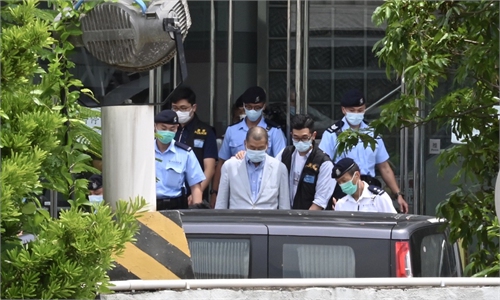Who are funding Hong Kong SAR secessionist groups for anti-China activities?
Some anti-China groups in the Hong Kong Special Administrative Region (HKSAR) that illegally collect money online for separatist activities have been publicly criticized for conspiring with foreign forces to sow discord in the region.
Any illicit money flows and wrongdoings will certainly be discovered through investigations under the national security law for Hong Kong, Hong Kong-based legal experts told the Global Times.
National security officers in Hong Kong are investigating a group named "I want laam chau," alias for "Fight for Freedom, Stand with Hong Kong (SWHK)," South China Morning Post reported on Thursday. The group has reportedly received nearly $3.87 million in donations from several crowdfunding campaigns on overseas online platforms.
Apart from "SWHK," several secessionist groups, including the dissolved Demosistō and Hong Kong IAD, have also raised, or are still raising, money on US- and UK-based crowdfunding websites.
Crowdfunding for activities endangering national security goes against both the national security law for Hong Kong and provisions in China's Criminal Law regarding national security, Wu Yingpeng, a Hong Kong-based lawyer, told the Global Times on Thursday.
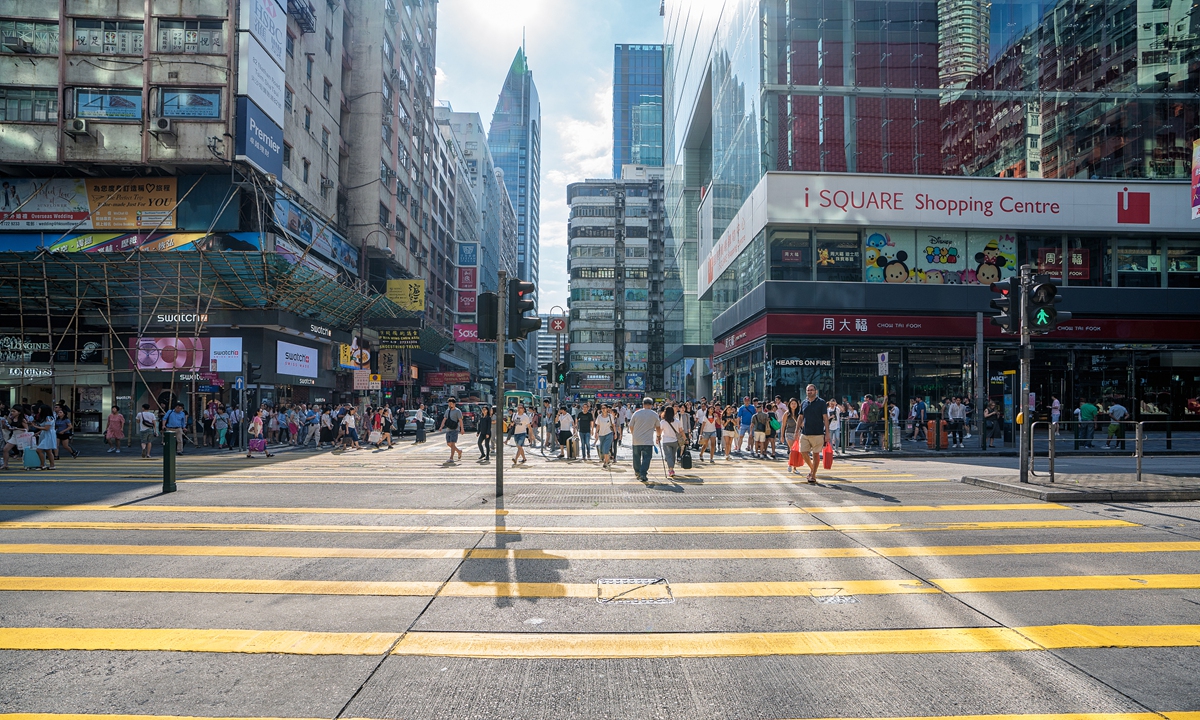
Tracking illegal money
Pro-separatist fundraising groups including "SWHK" have collected some $6.84 million over the past year, according to Hong Kong media. The groups claim they spend the money on calling for "international sanctions" against Beijing due to the national security law for Hong Kong.
Hong Kong police are tracking the source of the money these groups received. The investigation involves the Apple Daily Charitable Foundation, a foundation under the gossip tabloid Apple Daily, whose founder Jimmy Lai and several of its top managers were investigated for suspicion of colluding with foreign forces and endangering national security.
The foundation has yet to publicly disclose the sources of its money. After Lai was released on bail on August 11, Apple Daily applied for a court ban against police accessing documents seized at its office, Hong Kong police confirmed to the Global Times.
Some of the seized documents were related to the Apple Daily Charitable Foundation, including its financial records and "other details about charitable grants," the tabloid reported on August 11, quoting its editor-in-chief Ryan Law.
Hong Kong police stated last week some people used "overseas bank accounts of Apple Daily's executives" to support "SWHK." Police suspect Lai of financially aiding SWHK and giving several million Hong Kong dollars to members of the illegal "Occupy Central" movement in 2014.
Although the results of the police investigation have not yet been made public, the possibility Lai aided these groups is likely, said Li Xiaobing, an expert on Hong Kong, Macao and Taiwan studies at Nankai University in Tianjin.
If the funding is proven, it will become clearer for the public to learn how these groups back each other to deliver separatist messaging harmful to Chinese society, Li told the Global Times. Li called the groups a "malignant tumor" which erodes social stability in Hong Kong, and added the revelation of their support network is crucial for a more transparent and promising political environment for the region's future.
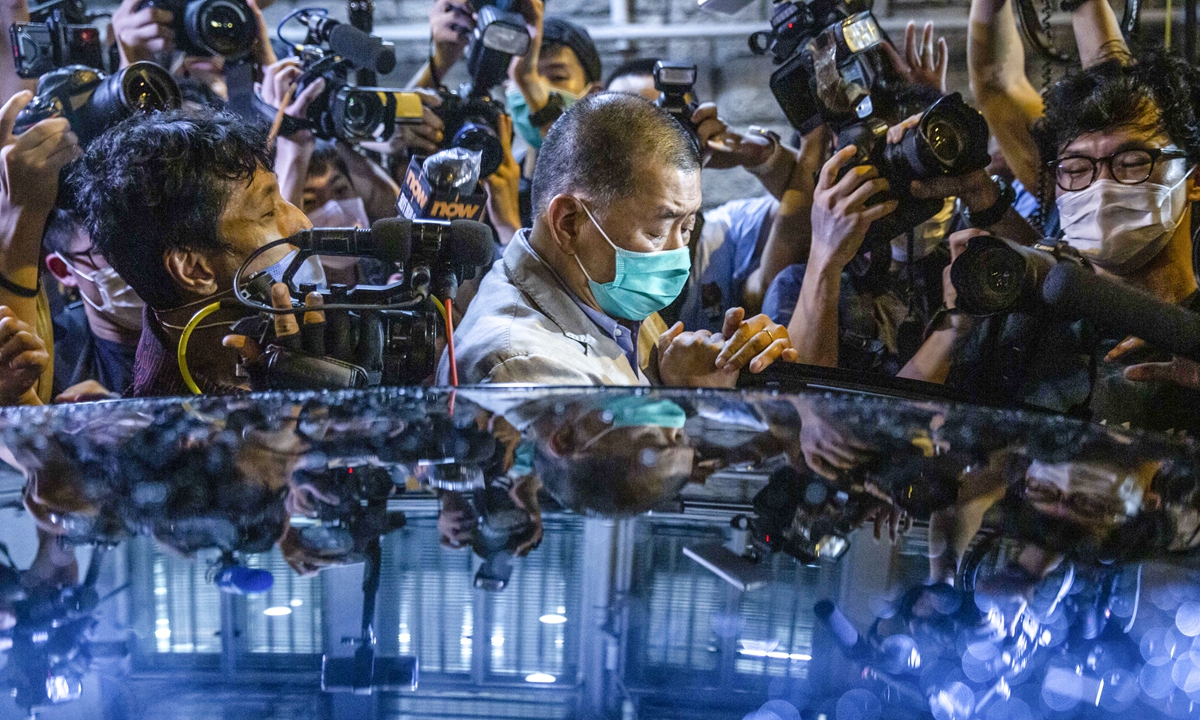
Lai, 71, also has invested in media and property in Myanmar and the island of Taiwan, according to leaked documents sent to Hong Kong news outlets in 2014.
Since Lai was arrested, the stock price of his media company Next Digital has surged and slumped, suggesting some people and outside forces inflated the stock price, said Liang Haiming, chairman of the China Silk Road iValley Research Institute.
It's unclear if the stock's volatility is related to moves by Hong Kong secessionist forces, Liang told the Global Times on Thursday. The HK Securities and Futures Commission has launched an investigation on this oddly performing stock.
"If this trading anomaly is really a backdoor operation by Lai's camp, he must have been well-prepared to circumvent the investigation and related legal issues," said Liang.
None above the law
Several radical groups have long been colluding with external forces in lobbying foreign politicians to meddle in Hong Kong's affairs, which have severely undermined the region's security and stability, observers said.
"SWHK" has been working with a London-based, anti-China group Hong Kong Watch to manipulate the UK's All-Party Parliamentary Group Hong Kong to stigmatize Hong Kong police, Hong Kong news outlets revealed.
The group has launched at least three online crowdfunding campaigns since 2019. The Global Times found its latest campaign is still in progress, having collected nearly $1.76 million with the slogan "Rise From the Ashes" since it started on US-based crowdfunding site gofundme.com in late May.
Whether an overseas crowdfunding is legal or not depends on the local laws where the campaign is launched, Wu said. Nonetheless, China has jurisdiction over the act if a crime takes place within its territory, according to Paragraph 3 of Article 6 of China's Criminal Law, he added.
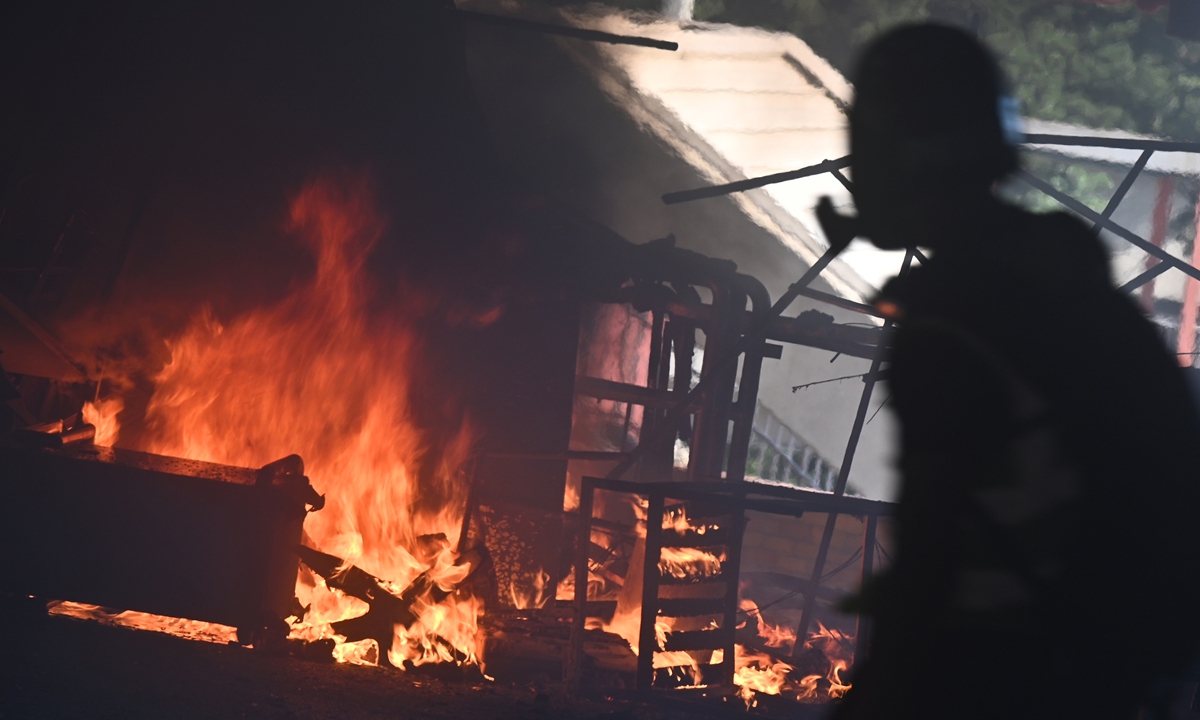
This means if fundraisers spent crowdfunded money on activities endangering national security in Hong Kong, they could be charged no matter where the money was raised, Wu told the Global Times.
Hong Kong police said it had tracked down three people in charge of the operations of "SWHK". On August 10, it arrested Wilson Li, Andy Li and Agnes Chow - former core members of anti-China groups "Scholarism" "Hong Kong Story" and "Demosistō" - on suspicion of colluding with foreign forces, money laundering and conspiracy to commit fraud.
The three were alleged to be "key members" in Hong Kong behind these groups, a source told South China Morning Post.
The infamous secessionist Nathan Law, a key participant of "Demosistō" fled to the UK in July. During US Secretary of State Mike Pompeo's visit to the UK, Law met with the US top diplomat and visited former governor of Hong Kong Chris Patten, a figure Law said "inspired" him "to persist." Law called on Patten and Pompeo to continue their interference into Hong Kong affairs. It drew widespread public anger with some Hong Kong residents accusing them of "clasping an enemy to their bosom."
On July 22, the same day Law met with Pompeo, "Demosistō" was reported by the public for suspicion of illegal fundraising and fraud.
Secessionist leaders including Joshua Wong, Nathan Law and Agnes Chow announced their withdrawal from pro-secession group "Demosisto" on the same day the National Security Law for Hong Kong took effect on June 30. Shortly after their announcement, "Demosisto" said it would disband.
However, local media quoted sources alleging HK$22 million originally in the group's bank account was not tracked back whereas over HK$1 million was reportedly revealed in the personal accounts of some key "leaders" including Joshua Wong and Agnes Chow. It raised speculation those key members secretly made profit from collecting money through donations to prepare for absconding overseas, said the report.
Over the suspicion, a few groups in Hong Kong such as "Johnny Patriotic 101" and "DQ action" gathered at the Hong Kong Police Headquarters on July 22 to appeal for an in-depth investigation to find out where the money had been spent and whether there was any fraud involved.
Observers said the police have also put six separatists living overseas on its wanted list, including Nathan Law, and Samuel Chu from the "Hong Kong Democracy Council" (HKDC), a Washington-based secessionist organization which collected some $141,000 through a crowdfunding campaign it launched on gofundme.com in late June. Last year's riots in Hong Kong revealed how some NGOs increasingly played a role in accelerating street violence by funding illegal protesters and calling for donations for those arrested. On December 19, 2019, Hong Kong police arrested four members of Spark Alliance, an online fundraising platform that raises money to aid illegal protesters, on the charge of money laundering.
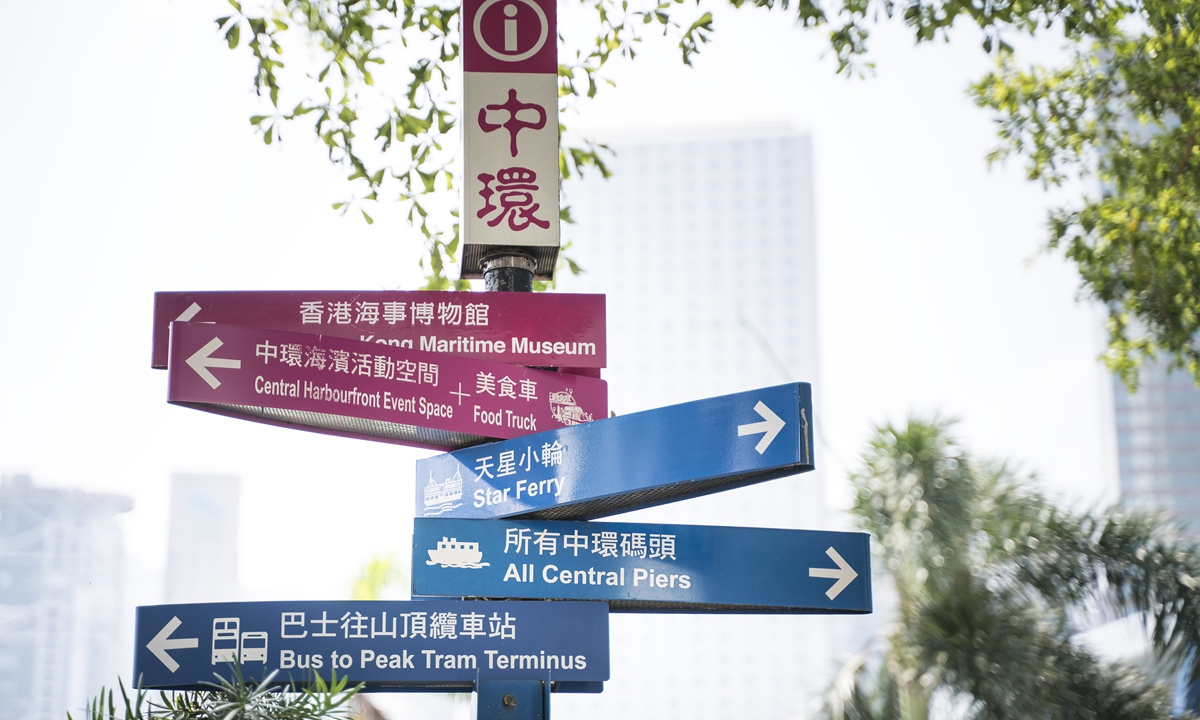
Similar organizations including "612 Humanitarian Relief Fund" and "Justice Defense Fund" have a record of financial misconduct documented by Hong Kong media.
Some young members of separatist groups who fled to Taiwan have not seen a world of "democracy, freedom, and light" as promised by their advocates, but instead have languished in a distant land, according to media reports.
Li Xiaobing suggested both the Committee for Safeguarding National Security for Hong Kong and the Central Government's Office for Safeguarding National Security in Hong Kong, two key supervisory agencies that ensure national security in Hong Kong, should closely track down people who mobilize resources to undermine the stability of Hong Kong.
After the implementation of the National Security Law for Hong Kong, separatists should be more aware they will have to pay the price for their vicious deeds, the expert said.
Any illicit money flows and wrongdoings will certainly be discovered through investigations under the national security law for Hong Kong, Hong Kong-based legal experts told the Global Times.
National security officers in Hong Kong are investigating a group named "I want laam chau," alias for "Fight for Freedom, Stand with Hong Kong (SWHK)," South China Morning Post reported on Thursday. The group has reportedly received nearly $3.87 million in donations from several crowdfunding campaigns on overseas online platforms.
Apart from "SWHK," several secessionist groups, including the dissolved Demosistō and Hong Kong IAD, have also raised, or are still raising, money on US- and UK-based crowdfunding websites.
Crowdfunding for activities endangering national security goes against both the national security law for Hong Kong and provisions in China's Criminal Law regarding national security, Wu Yingpeng, a Hong Kong-based lawyer, told the Global Times on Thursday.

The street view of Hong Kong Photo: VCG
Tracking illegal money
Pro-separatist fundraising groups including "SWHK" have collected some $6.84 million over the past year, according to Hong Kong media. The groups claim they spend the money on calling for "international sanctions" against Beijing due to the national security law for Hong Kong.
Hong Kong police are tracking the source of the money these groups received. The investigation involves the Apple Daily Charitable Foundation, a foundation under the gossip tabloid Apple Daily, whose founder Jimmy Lai and several of its top managers were investigated for suspicion of colluding with foreign forces and endangering national security.
The foundation has yet to publicly disclose the sources of its money. After Lai was released on bail on August 11, Apple Daily applied for a court ban against police accessing documents seized at its office, Hong Kong police confirmed to the Global Times.
Some of the seized documents were related to the Apple Daily Charitable Foundation, including its financial records and "other details about charitable grants," the tabloid reported on August 11, quoting its editor-in-chief Ryan Law.
Hong Kong police stated last week some people used "overseas bank accounts of Apple Daily's executives" to support "SWHK." Police suspect Lai of financially aiding SWHK and giving several million Hong Kong dollars to members of the illegal "Occupy Central" movement in 2014.
Although the results of the police investigation have not yet been made public, the possibility Lai aided these groups is likely, said Li Xiaobing, an expert on Hong Kong, Macao and Taiwan studies at Nankai University in Tianjin.
If the funding is proven, it will become clearer for the public to learn how these groups back each other to deliver separatist messaging harmful to Chinese society, Li told the Global Times. Li called the groups a "malignant tumor" which erodes social stability in Hong Kong, and added the revelation of their support network is crucial for a more transparent and promising political environment for the region's future.

Jimmy Lai pushes through media after being released on bail in Hong Kong on August 12. Photo: AFP
Lai, 71, also has invested in media and property in Myanmar and the island of Taiwan, according to leaked documents sent to Hong Kong news outlets in 2014.
Since Lai was arrested, the stock price of his media company Next Digital has surged and slumped, suggesting some people and outside forces inflated the stock price, said Liang Haiming, chairman of the China Silk Road iValley Research Institute.
It's unclear if the stock's volatility is related to moves by Hong Kong secessionist forces, Liang told the Global Times on Thursday. The HK Securities and Futures Commission has launched an investigation on this oddly performing stock.
"If this trading anomaly is really a backdoor operation by Lai's camp, he must have been well-prepared to circumvent the investigation and related legal issues," said Liang.
None above the law
Several radical groups have long been colluding with external forces in lobbying foreign politicians to meddle in Hong Kong's affairs, which have severely undermined the region's security and stability, observers said.
"SWHK" has been working with a London-based, anti-China group Hong Kong Watch to manipulate the UK's All-Party Parliamentary Group Hong Kong to stigmatize Hong Kong police, Hong Kong news outlets revealed.
The group has launched at least three online crowdfunding campaigns since 2019. The Global Times found its latest campaign is still in progress, having collected nearly $1.76 million with the slogan "Rise From the Ashes" since it started on US-based crowdfunding site gofundme.com in late May.
Whether an overseas crowdfunding is legal or not depends on the local laws where the campaign is launched, Wu said. Nonetheless, China has jurisdiction over the act if a crime takes place within its territory, according to Paragraph 3 of Article 6 of China's Criminal Law, he added.

A man walks past burning barricades at the Hong Kong Polytechnic University during riots on November 11, 2019. Photo: AFP
This means if fundraisers spent crowdfunded money on activities endangering national security in Hong Kong, they could be charged no matter where the money was raised, Wu told the Global Times.
Hong Kong police said it had tracked down three people in charge of the operations of "SWHK". On August 10, it arrested Wilson Li, Andy Li and Agnes Chow - former core members of anti-China groups "Scholarism" "Hong Kong Story" and "Demosistō" - on suspicion of colluding with foreign forces, money laundering and conspiracy to commit fraud.
The three were alleged to be "key members" in Hong Kong behind these groups, a source told South China Morning Post.
The infamous secessionist Nathan Law, a key participant of "Demosistō" fled to the UK in July. During US Secretary of State Mike Pompeo's visit to the UK, Law met with the US top diplomat and visited former governor of Hong Kong Chris Patten, a figure Law said "inspired" him "to persist." Law called on Patten and Pompeo to continue their interference into Hong Kong affairs. It drew widespread public anger with some Hong Kong residents accusing them of "clasping an enemy to their bosom."
On July 22, the same day Law met with Pompeo, "Demosistō" was reported by the public for suspicion of illegal fundraising and fraud.
Secessionist leaders including Joshua Wong, Nathan Law and Agnes Chow announced their withdrawal from pro-secession group "Demosisto" on the same day the National Security Law for Hong Kong took effect on June 30. Shortly after their announcement, "Demosisto" said it would disband.
However, local media quoted sources alleging HK$22 million originally in the group's bank account was not tracked back whereas over HK$1 million was reportedly revealed in the personal accounts of some key "leaders" including Joshua Wong and Agnes Chow. It raised speculation those key members secretly made profit from collecting money through donations to prepare for absconding overseas, said the report.
Over the suspicion, a few groups in Hong Kong such as "Johnny Patriotic 101" and "DQ action" gathered at the Hong Kong Police Headquarters on July 22 to appeal for an in-depth investigation to find out where the money had been spent and whether there was any fraud involved.
Observers said the police have also put six separatists living overseas on its wanted list, including Nathan Law, and Samuel Chu from the "Hong Kong Democracy Council" (HKDC), a Washington-based secessionist organization which collected some $141,000 through a crowdfunding campaign it launched on gofundme.com in late June. Last year's riots in Hong Kong revealed how some NGOs increasingly played a role in accelerating street violence by funding illegal protesters and calling for donations for those arrested. On December 19, 2019, Hong Kong police arrested four members of Spark Alliance, an online fundraising platform that raises money to aid illegal protesters, on the charge of money laundering.

The street view of Hong Kong Photo: VCG
Similar organizations including "612 Humanitarian Relief Fund" and "Justice Defense Fund" have a record of financial misconduct documented by Hong Kong media.
Some young members of separatist groups who fled to Taiwan have not seen a world of "democracy, freedom, and light" as promised by their advocates, but instead have languished in a distant land, according to media reports.
Li Xiaobing suggested both the Committee for Safeguarding National Security for Hong Kong and the Central Government's Office for Safeguarding National Security in Hong Kong, two key supervisory agencies that ensure national security in Hong Kong, should closely track down people who mobilize resources to undermine the stability of Hong Kong.
After the implementation of the National Security Law for Hong Kong, separatists should be more aware they will have to pay the price for their vicious deeds, the expert said.

